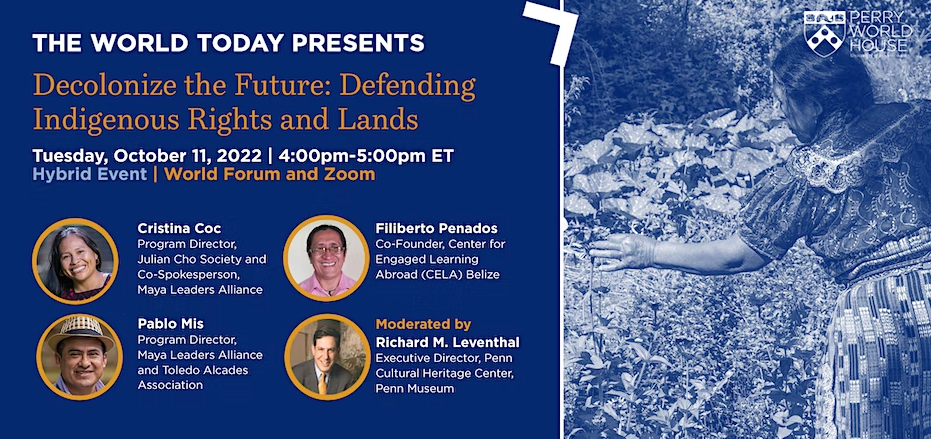
Indigenous Peoples across the Americas have faced more than five centuries of colonial occupation and exploitation. The struggle for Indigenous rights – especially Indigenous land rights – continues to this day. Indigenous and community lands cover more than fifty percent of the world’s surface, but just five percent of these lands are actually legally owned by Indigenous Peoples and local communities.
Despite many challenges, the Maya People have made significant progress on land rights in recent years, winning legal victories in Belize and forging progress within the Inter-American Commission on Human Rights. Their successes and setbacks have global implications for human rights, justice, and climate change: when Indigenous communities have secure land rights, they experience greater prosperity, and their territories have lower rates of deforestation and greenhouse gas emissions, as well as improved biodiversity protection.
In this edition of "The World Today" to mark Indigenous Peoples' Day, Perry World House will welcome three Maya activists from Belize - Cristina Coc, Pablo Mis, and Filiberto Penados - to discuss the history of Indigenous land rights, ongoing negotiations, and the global significance of the Maya struggle to defend their lands and secure their future.
SPEAKERS:
Cristina Coc is a Q’eqchi’ Maya community leader. She founded and is presently program director of the Julian Cho Society, dedicated to the conservation of the environments and rights of the Indigenous Peoples of southern Belize. She is also one of the key organizers and a co‐spokesperson for the Maya Leaders Alliance. Coc brings a wealth of knowledge of these communities, fluency in Q’eqchi’, and experience in mobilizing local residents.
Pablo Mis is the program director for the Maya Leaders Alliance and Toledo Alcaldes Association. These organizations, headed by the traditional leaders of thirty-nine Maya villages in southern Belize, led strategic litigation against the government of Belize for Maya land rights. Their efforts resulted in the historic 2015 Caribbean Court of Justice Judgment and Consent Orders that affirmed that the Maya People have customary rights to their land. In 2020, UN Secretary-General António Guterres appointed Mis to the Advisory Board of Trustees of the United Nations Voluntary Fund for Indigenous Peoples.
Filiberto Penados is an associate professor and research director at Galen University, and chair of the Julian Cho Society. He is a co-founder of Center for Engaged Learning Abroad (CELA) Belize and a Maya scholar whose work focuses on indigenous education and development. He has a long history of engaged scholarship with indigenous and local communities in Belize and a wealth of experience leveraging this involvement to create unique learning experiences. Penados has served as a professor at the University of Manitoba, University of Toronto, Galen University, and the University of Belize. He teaches courses on sustainable development, natural resource management and education, and related fields.
MODERATOR:
Richard M. Leventhal is executive director of the Penn Cultural Heritage Center of the Penn Museum as well as professor in the Department of Anthropology, University of Pennsylvania. He serves as curator in the American Section at the University of Pennsylvania Museum of Archaeology and Anthropology where he formerly served as the Williams Director. Prior to coming to Penn, he was the president of the School for Advanced Research in Santa Fe, New Mexico and the director of the Cotsen Institute of Archaeology of Archaeology at UCLA. Leventhal received his PhD from Harvard University. He is one of the directors of the Tihosuco Heritage Preservation and Community Development Project, focused upon the 19th century rebellion called the Caste War of the Yucatan or the Maya Social War. He has written extensively about the ancient Maya and about cultural heritage preservation.

 Center for Latin American and Latinx Studies
Center for Latin American and Latinx Studies